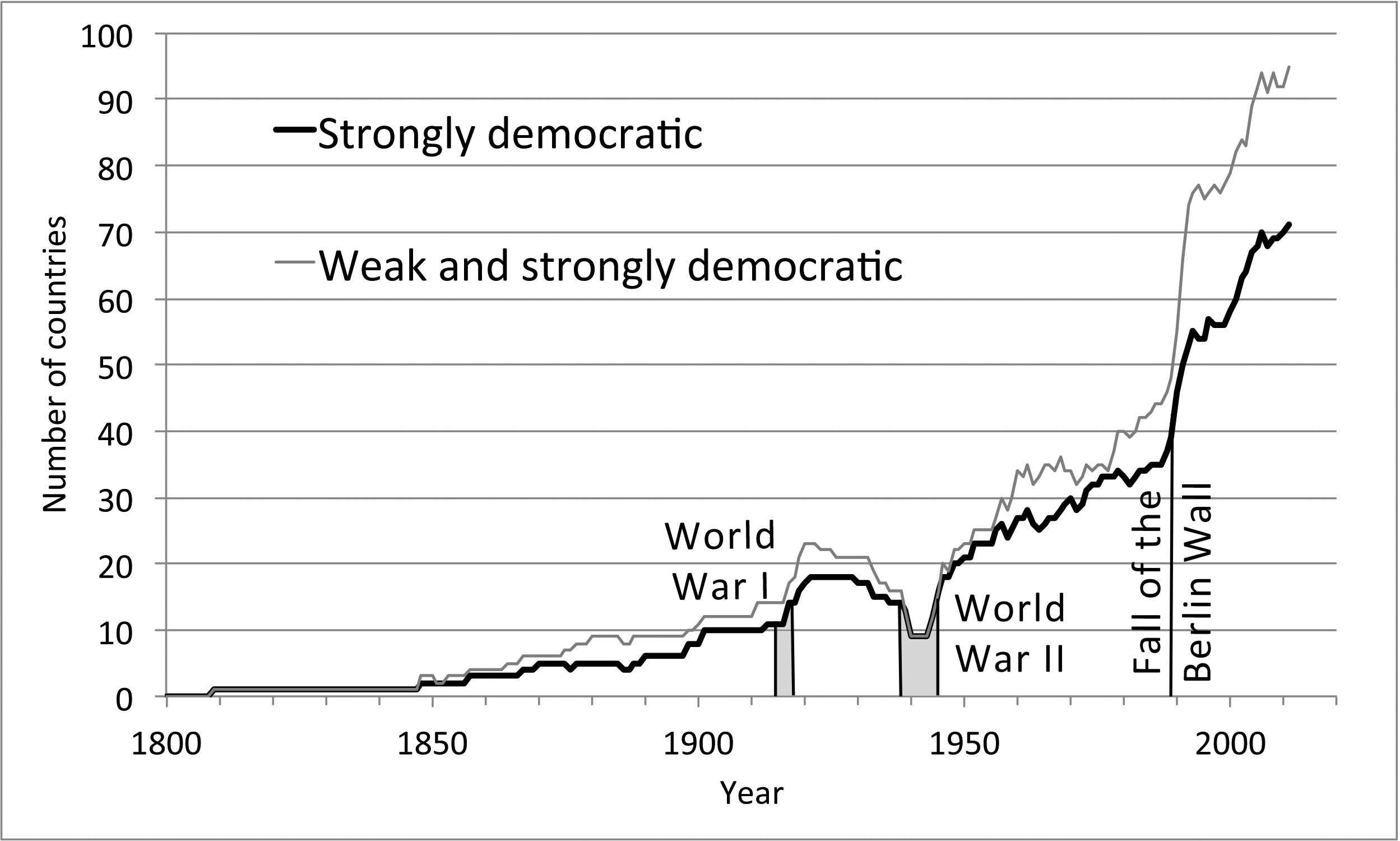Sortition: the way to remake democracy for the 21st century

One of the big – perhaps even the biggest – philosophical questions that any society must answer is how to live together. How should a group of people – a city, country, continent, or even the entire planet – share and manage common resources? How, and who, should make the rules that govern and bind us?
This has always been an important question. And today it is perhaps even more important than ever if we are going to address the major issues of our times such as rising inequality, climate change and the refugee crisis, to name just a few.
It is also an ancient question. People have been asking this question ever since humans began living in organised societies, as some of our oldest recorded history demonstrates. Plato represents just one famous ancient example: he believed we needed benevolent “guardians” to look after us: a group of people who would make decisions for the greater good of the entire society.
Kings, queens, nobles and aristocrats represent one incarnation of this idea. They thought themselves superior either by divine right or birth and bloodline. It took various bloody revolutions, where kings and queens (and aristocrats) tended to lose their heads before this ideal lost its legitimacy.
Marx’s communism represents another attempt to answer the question of how to live together, as does Nazism and fascism, and the twentieth century can be seen as a battle between these various ideas. With the collapse of the Berlin Wall in 1989 and the implosion of the USSR, Francis Fukuyama famously claimed that we had reached the end of history: that the question of how to live together had been answered and that the answer was liberal democracy.
As can be seen from the graph the number of democracies increased dramatically after 1989 leading to the twentieth century being called the century of democracy’s triumph. This answer, democracy, of how to live together, after going (more or less) into hibernation for around 2000 years, has had profound recent success. The extraordinary increase over time is indeed impressive. But even the most cursory glance at what people think about democracy displays a curious paradox: although the vast majority of people on the planet like democracy and wish to live in a democracy, almost no one living in a democracy thinks they are functioning well.

So if liberal democracy is the end of history then there is a large contradiction here: we love the idea, but we are overwhelmingly disappointed with its current institutional implementation. We love the ideals that democracy in theory encapsulates: legitimacy, equality, accountability and security, but we know the system is not working in practice. Our politics is broken, politicians aren’t trusted and the political system is distorted by powerful vested interests.
There are at least two ways to resolve this paradox. The first is to reject democracy, to vote for a populist demagogue who promises to ignore democratic norms and trample on liberal freedoms just to get things done. It has happened in the past and seems to be happening again in many countries.
The second option is to fix our broken democracies by bringing the practise closer to the ideal. We must include the diverse voices of society in our parliaments and get them to make considered, evidence-based laws for the long-term good of society.
Which brings me to sortition – the technical name for random selection. Which is a very simple idea: to use random selection to populate our parliaments.
Imagine if we chose a bunch of randomly selected people, put them in parliament, and asked them to make the laws for the next couple of years. We could easily stratify the selection to match the demographic and socio-economic profile of the country so that it would be a truly representative sample. Fifty per cent of the legislators would be women. There would be many young people, some old people, a few rich people, but mostly just normal everyday people like you and me.
This randomly selected group would be a microcosm of society which would simulate how we would all think, if we were given the time, information and a good process to come to the moral crux of political decisions. And although you may not be selected, there would be someone of your age, someone of your gender, someone from your area, and someone with your background in the parliament. It would be a mirror of society.
The decisions made by these people would build on the wisdom of crowds – they would become more than the sum of their parts. They would become critical thinkers, with access to experts, who would be on tap, but not on top. And they would prove that diversity can trump ability when dealing with the wide array of societal questions and problems. Importantly, it would not be government by opinion poll or government by referendum. These deliberating, informed people would move beyond public opinion to the making of public judgements.
However there would be one very serious side effect. If we replaced elections with sortition and made our parliaments truly representative of our society it would mean the end of politicians. Which, according to most opinion polls, would not sadden many people.
Interestingly, random selection was also a key part of how democracy was done in ancient Athens. The picture below is of a Kleroteria, which is an ancient Athenian random selection device. The Athenians used random selection to fill the vast majority of their political offices. They knew that elections were aristocratic devices and knew that career politicians were a thing to be avoided. And I think we know these things too.

But even more interesting than the ancient use of sortition is its modern resurgence. The rediscovery of the legitimacy of random selection has become so common that there are simply too many examples: in Ireland they have used randomly-selected assemblies to discuss the constitutional ban on abortion and same-sex marriage, in Australia to talk about nuclear waste dumps, in Iceland as part of the process to draft a new constitution, in Canada to develop electoral reform proposals, and G1000s – groups of up to 1000 randomly selected people coming together – have been held in Belgium, the Netherlands, Spain and the first one in the UK will be held in Cambridge this September. Perhaps surprisingly, the overwhelming and compelling evidence from all these modern examples is that random selection works. If you give people responsibility they act responsibly.
Of course it is not a panacea. The question is not, “Would sortition be perfect?” Of course it wouldn’t! People are fallibly human and many distorting influences will continue to exist. The question is rather, “Would it be better?” And the answer to that question, to me at least, is obviously yes.
So how can we fix our broken political system and remake democracy for the twenty-first century? How can we live together in a way that brings the practice of democracy closer to its appealing ideals? The answer: with a parliament that uses sortition.
But how do we get from here to there? There are several things we can do, and that are, in fact, being done right now:
- We can experiment with sortition. We can use it in schools or workplaces or other institutions, like Democracy in Practice is doing in Bolivia.
- Or we can hold policy juries and citizens’ assemblies like the new Democracy Foundation is doing in Australia, the Jefferson Center is doing in the US, and the Irish government is doing right now.
- And we can build a social movement demanding change, like the Sortition Foundation is doing in the UK.
- And then we should institute it in government. The first step might be setting up a second chamber in our parliaments full of randomly selected people, a Citizens’ Senate to replace the House of Lords. There is a campaign for a second chamber like this in Scotland and another one in France. It could be like a Trojan Horse right into the heart of government.
And then, when it becomes impossible to patch over the cracks in the current political system we must step up and replace elections with sortition and make our parliaments truly representative of society. I have hope. Throughout history systems have been constructed and systems have been torn down and replaced by people seeking legitimacy and justice. Change does and can happen. It is just a matter of when and how.
Brett Hennig is the co-founder and director of the Sortition Foundation and the author of The End of Politicians: Time for a Real Democracy.
Editors note added 20/05/2017, 5:12pm: This is an edited transcript of Brett’s TEDx Danubia talk.




Good post. I’m wondering if you have read my piece on sortition because some of the points look familiar. Cheers.
Mike
http://summit.sfu.ca/item/12579